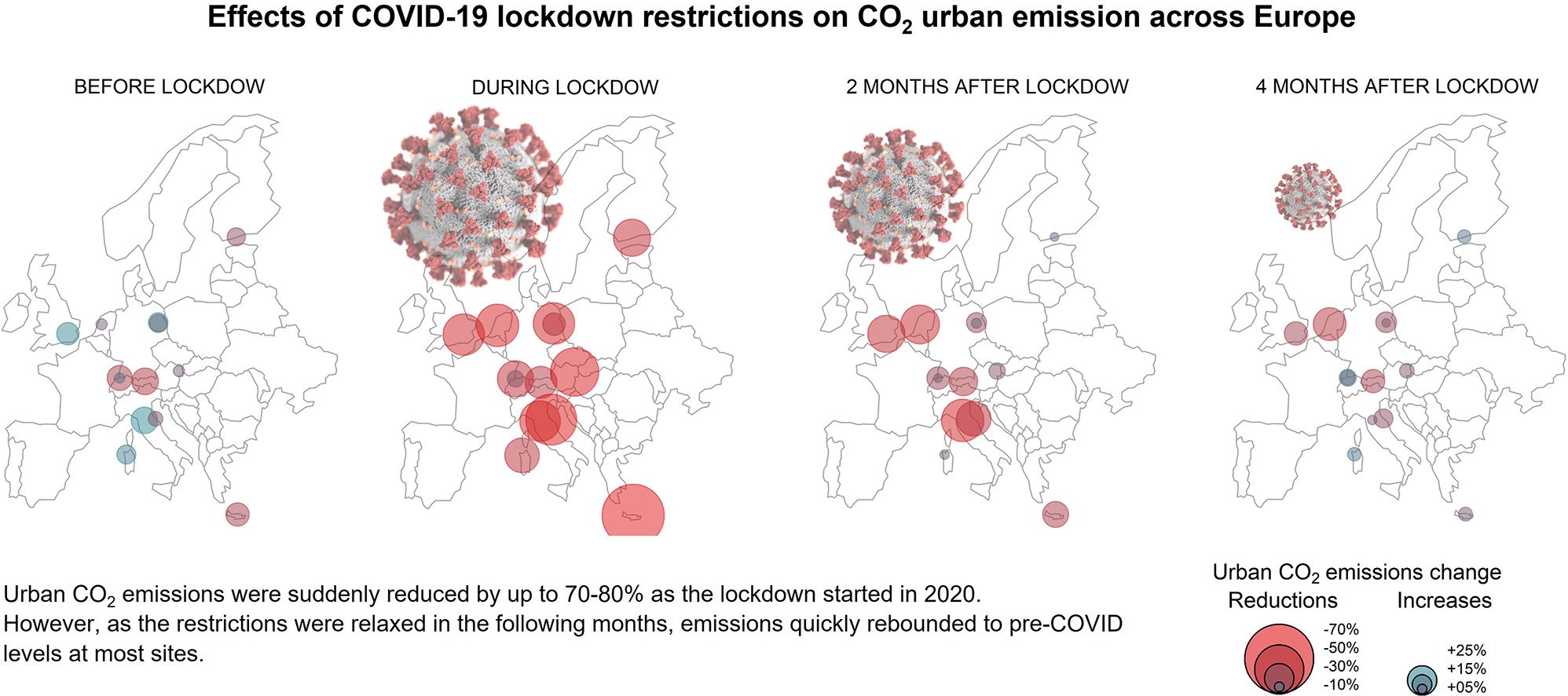
Emissions cuts to 87% across 11 European cities analyzed by using micrometeorological data from 13 measurement stations. Pesaro and Florence are among the cities in which a more consistent reduction of CO2 emissions was observed, while in Amsterdam and London emissions remained low after the lockdown restrictions. The result of a research realized by an international team of scientists and led by a group of ICOS Italia, the Italian network for the monitoring and assessment of greenhouse gases.
A clear reduction in CO2 emissions was observed in many European cities during COVID-19 lockdown, and sometimes they remained surprisingly low even after restrictions were lifted. In Amsterdam, for example, the emissions were reduced by 40% during the lockdown and surprisingly, they remained about 30% lower for four months after the lockdown.
The study “Direct observations of CO2 emission reductions due to COVID-19 lockdown across European urban districts”, recently published in the journal Science of The Total Environment by an international research team led by ICOS Italia, Italian network for the monitoring and assessment of greenhouse gases, examined the effect of social restrictions on local emissions of CO2, with a special focus on emission reductions mainly as a result of limitations on mobility.
The study, led by the CMCC Foundation (among the authors, Giacomo Nicolini, CMCC scientist at IAFES – Impacts on Agriculture, Forests and Ecosystem Services and first author of the study, Gabriele Antoniella – IAFES, and Dario Papale, Associate Professor of Forest Ecology at the University of Tuscia, Viterbo, Italy, and CMCC IAFES researcher), analyzed emission data measured from 13 stations in 11 European cities.
At all sites, CO2 emissions were significantly reduced during the strictest lockdown measures. For most sites CO2 emissions returned to pre-pandemic levels by autumn of 2020. The largest reductions were seen at Heraklion (Greece), Pesaro (Italy), Florence (Italy), Berlin (Germany), London (UK), Basel (Switzerland), Amsterdam (The Netherlands), while the lowest reductions were seen in Sassari (Italy), Wien (Austria), Helsinki (Finland), Innsbruck (Austria). The main reason for the reduced CO2 emissions in all cities was the reduction of vehicular traffic caused by the limitations on mobility. This explains why residential areas saw the quickest rebound of emissions after the restrictions were lifted.
To effectively mitigate climate change, the researchers conclude, there has to be a bigger systemic change in cities’ ecosystems and in people’s lifestyles. As the COVID-19 lockdown showed, changes in human behaviour have a direct, immediate and significant effect on urban CO2 emissions.
“The ICOS Cities project will bring an extensive urban greenhouse gas exchange data collection for the global scientific community, available through the ICOS Carbon Portal,” says Professor Dario Papale, University of Tuscia in Italy, and Director of the ICOS Ecosystem Thematic Centre. “This data collection will be useful for additional analysis on the complex urban greenhouse gas exchange dynamic.”.
For further information:
“Direct observations of CO2 emission reductions due to COVID-19 lockdown across European urban districts”, Nicolini et al., Science of the Total Environment, 2022



